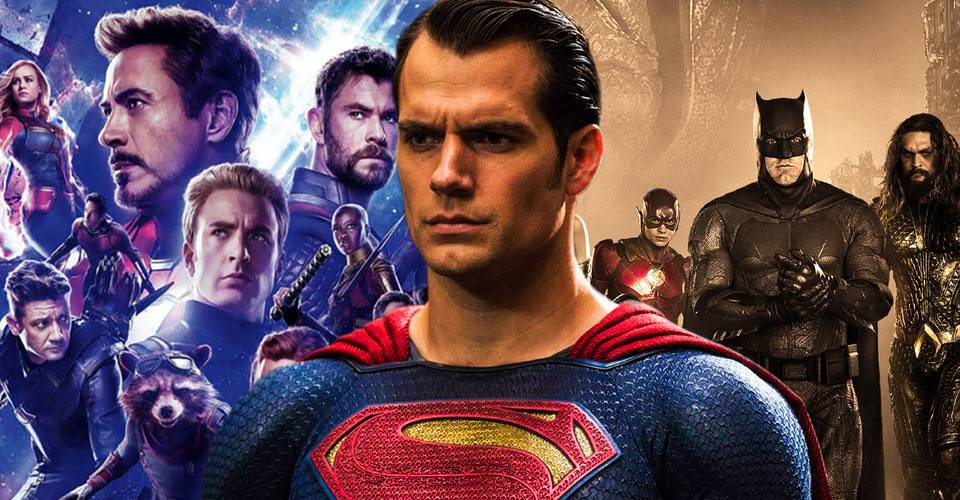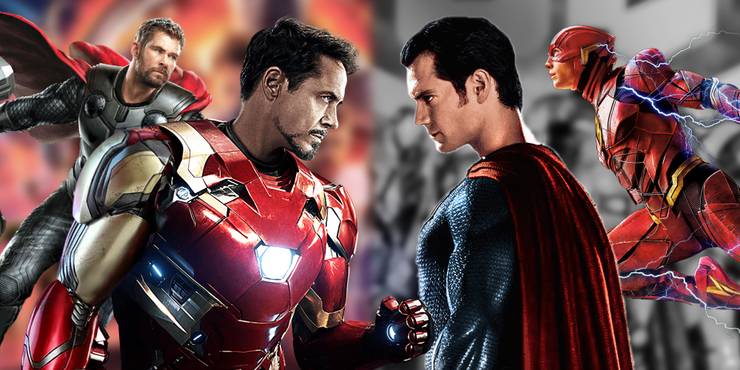Though the franchise is well-known for its issues, the DCEU still manages to beat its direct competitor, the MCU, in one important way. The two titans of the comic book world, DC and Marvel, have been engaged in a unique sort of rivalry for decades. One, DC, boasts – arguably – the most iconic heroes, while the other, Marvel, boasts the most successful movie franchise of all time. The nature of their rivalry stems simply from their shared place within the superhero genre and the many ways each has come to influence and define pop culture in the modern age.
Although the DCEU’s battle with the MCU essentially dates back several decades, it’s now being most fiercely fought in the medium of live-action cinema. Marvel’s own shared cinematic universe has gone from strength to strength, delivering a number of the highest-grossing movies of all time and consistently dominating the box office for years. The DCEU has been decidedly less successful, facing a number of behind-the-scenes issues and struggling to compete with the popularity of the interconnected narratives of its rival.
Whereas the massive scope of the MCU is fast becoming a daunting prospect, the DCEU is much better at telling self-contained narratives. Almost every new entry into the MCU comes with at least some required watching, but the DCEU’s movies and shows have so far been largely capable of standing alone. This much is even true of direct sequels and spin-offs within the franchise, and it’s something that makes the DCEU better by comparison.
The DCEU’s Standalone Stories Are Starting To Outshine The MCU
The success of the MCU’s shared universe has been a factor in its box office domination. However, with the novelty wearing off, the connected narratives of the franchise have begun to hold the MCU back, whereas the DCEU has been carefully consistent in that regard. By growing at a sensible rate, the DCEU isn’t as overstuffed as the MCU, and therefore doesn’t require such a staggering investment of time in order to remain up to speed. However, even when judging its movies and films on their individual merits, the DCEU is now beginning to be seen more favorably.
Within the DCEU, even direct sequels don’t necessarily require knowledge of preceding films: take the controversial Batman v Superman, for example, which recaps the most necessary plot points of Man of Steel from an alternate perspective. By delivering sequels that can also serve as independent stories or even entry points into the franchise, the DCEU feels much more accessible to wider audiences, especially those more in the market for casual viewing. The same rule applies to practically every DCEU property – though its stories are connected, this is achieved loosely enough to facilitate those less up to speed on the finer details of the franchise’s story.
Though there are those who prefer the MCU’s sprawling interwoven stories, the Marvel franchise is becoming bloated with content so reliant on preceding stories that it alienates more casual audiences. Taking Thor: Love and Thunder as an example, even for a relatively self-contained narrative, there are still several MCU movies to rewatch before Love and Thunder for it to completely make sense. Such intensive rewatches – or any rewatches – aren’t really necessary for the DCEU, and it’s an approach that is only now starting to give the franchise an edge over its Marvel rival.

